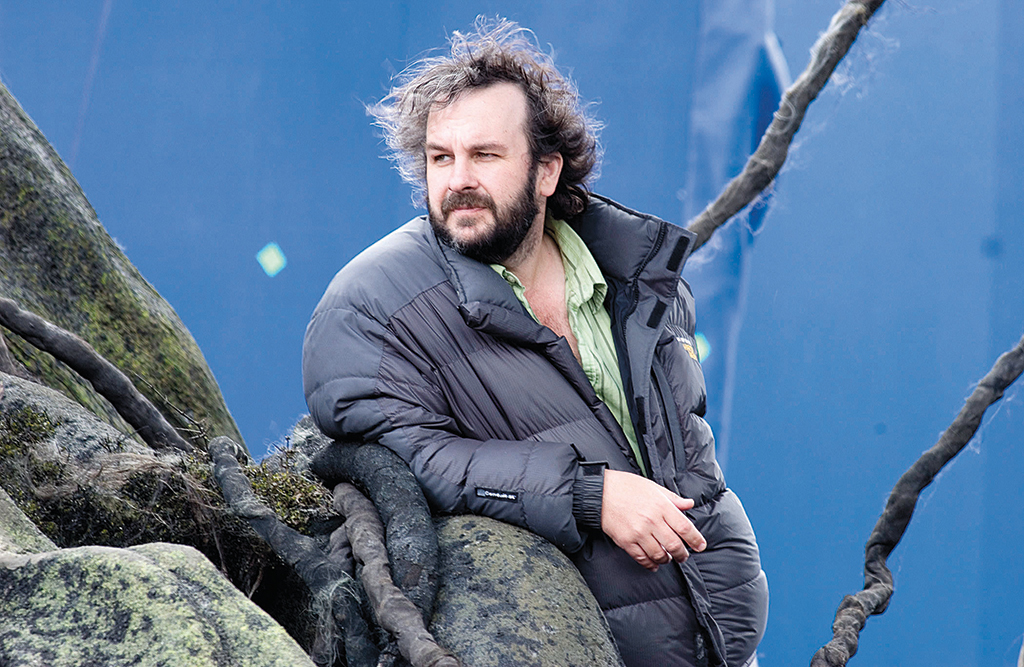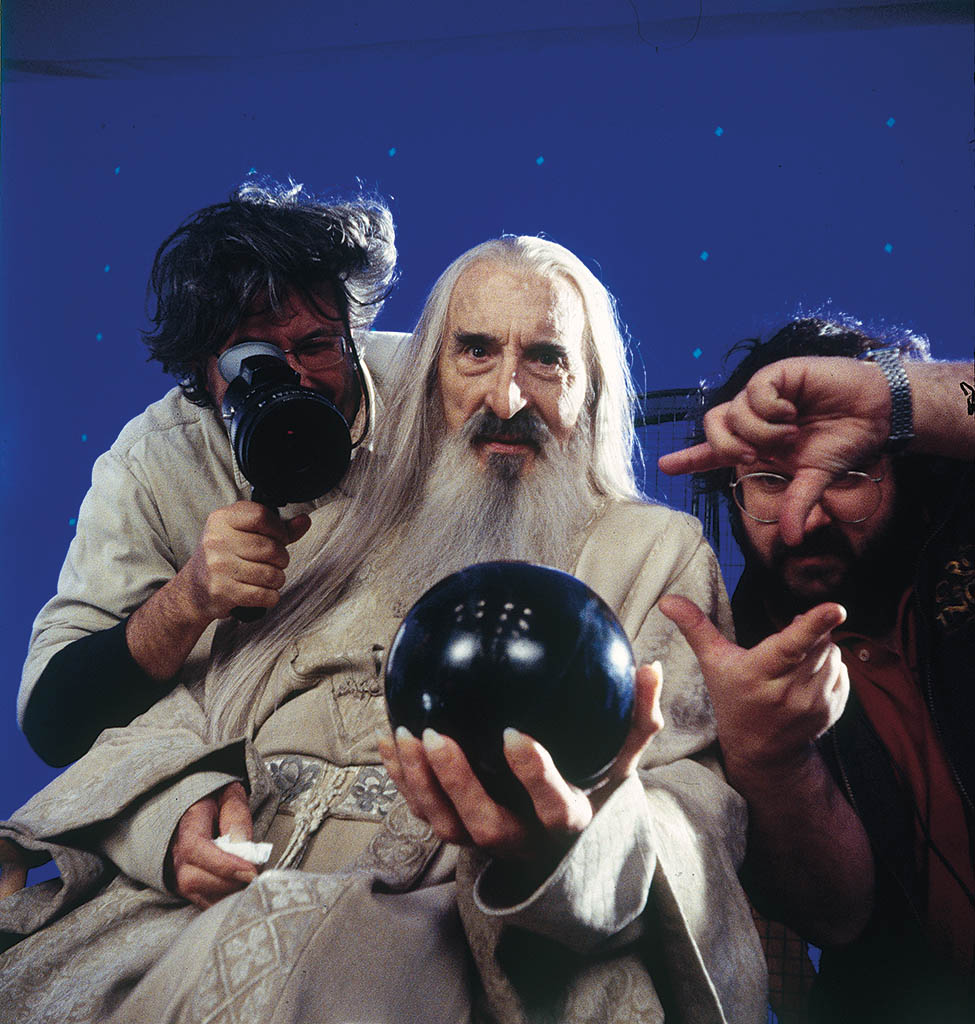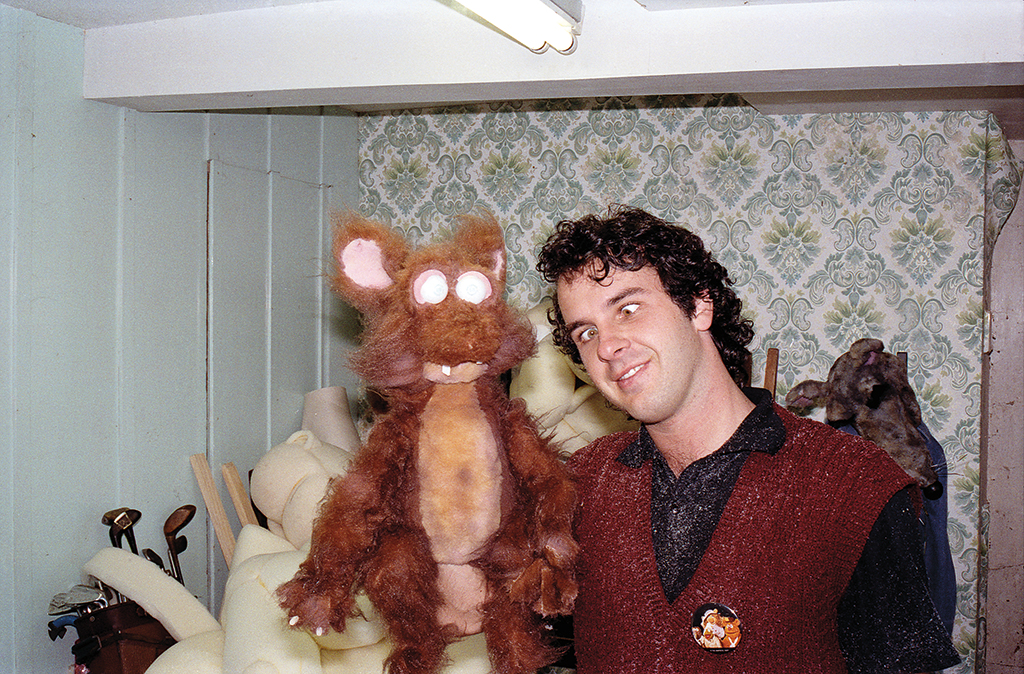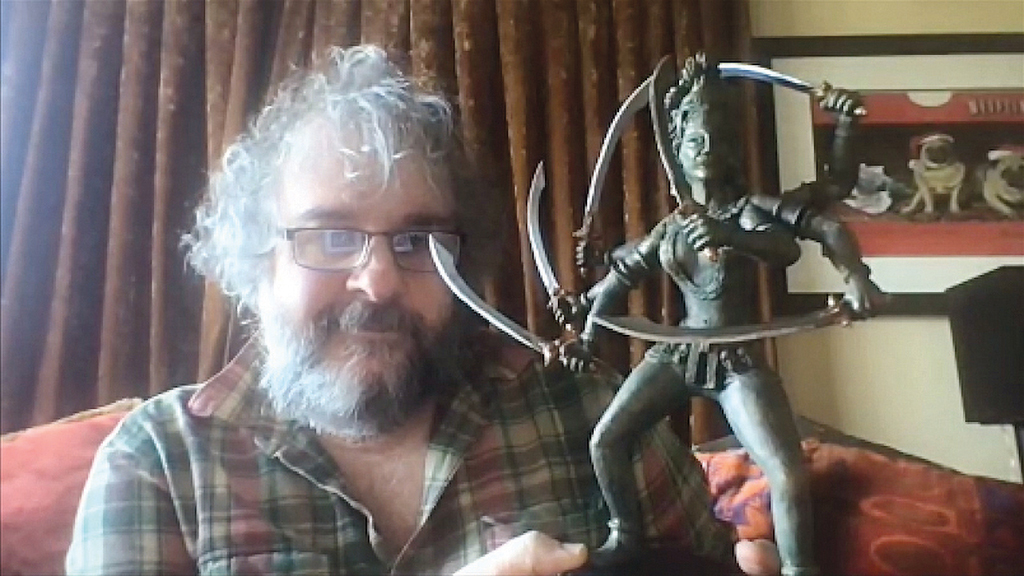Images courtesy of Peter Jackson

Sir Peter Jackson, VES Lifetime Achievement Award recipient.
Taking us from Skull Island to Middle Earth to the World War I battlefield to breakfast with the Beatles, Sir Peter Jackson has created cinematic experiences that have transported and transfixed audiences worldwide. One of the most innovative filmmakers of our generation, acclaimed director-producer-screenwriter Jackson has created exceptionally humanistic stories through his visionary approach, expansive storytelling and embrace of technology to enhance the movie going experience.
Jackson made history with The Lord of the Rings trilogy, becoming the first person to direct three major feature films simultaneously. The Fellowship of the Ring, The Two Towers and The Return of the King collected a slew of awards from around the globe – including 12 VES Awards across the trilogy, with The Return of the King receiving his most impressive collection of awards, including three Academy Awards, two Golden Globes, three BAFTAs, and awards from the Directors Guild and Producers Guild. His celebrated filmography includes Heavenly Creatures, King Kong, The Lovely Bones, the three-film adaptation of Tolkien’s The Hobbit, the acclaimed They Shall Not Grow Old and the forthcoming The Beatles: Get Back documentary, slated for release this summer.
In recognition of his enormous contributions to filmed entertainment, Jackson was honored at the 19th Annual VES Awards with the Lifetime Achievement Award. On that note, Jackson was clear: “If I was ever going to be honored for my lifetime of work, I would have chosen the VES award, because the dream of making visual effects was the seed of my whole world as a filmmaker. I’m thrilled and gratified. But I’ve checked the fine print and this award doesn’t call for mandatory retirement. Don’t think I’ve peaked – there’s a lot more to come!”

With Braindead miniatures.
“[To aspiring filmmakers] I generally say, ‘Make a film.’ Today, you can do so much with your phone, and the digital technology available to young people is incredible. It’s actually very hard to make a film at home. It demands a passion and dedication to your craft and a support system. But that’s why people should do it. It’s a test. If you want to be a filmmaker, you’ve got no excuses.”
—Peter Jackson
Jackson was always searching for things to occupy his imagination, and he credits his ‘alone time’ with sparking his love of visual effects. “I remember when my dad brought home our first black-and-white TV. I was enraptured with British sci-fi shows Stingray and Thunderbirds. I was putty in their hands and I used my Matchbox cars to recreate the scenes. Then came the original King Kong and Jason and the Argonauts, and it opened up a world that I didn’t know existed. That early fascination shaped me as a filmmaker. I strive to make films I like to watch, that have an air of escapism and the fantastic.
“I was making movies with my parents’ Super 8 and then a 16MM when I was really young. I wanted to be a filmmaker, particularly working in VFX, in part because it was a solitary activity.
As I was filming home movies, I began to think about camera angles and how to compose shots and tell a story, and I started to learn how to edit and splice shots together. I fell in love with storytelling and realized I’d be frustrated being told what to do… and so a director was born!”
Jackson started out making low-budget splatter films. His first, Bad Taste, was shot on weekends over four years and evolved into Jackson’s first feature film. “It was both practical and passion. I loved horror films like Evil Dead and Dawn of the Dead, and when you can only make a low-budget movie, you can’t make a King Kong or a Harryhausen film with spectacle or costumes or exotic locations. The genre allowed me to make an impact without much money. We just needed special effects and a sense of humor. It was a great gateway.”
By the time he got to the genesis of the Lord of the Rings movies, Jackson knew they would have the financing to make a cool, modern version of a Harryhausen film – that was the initial spark. “We started working on fantasy film ideas and at every turn realized we couldn’t do something, because it was too much like Lord of the Rings. We were frustrated that everything seemed to emanate from Tolkien. So eventually we decided to get the rights and adapt it ourselves.”

With Orcs on the set of Lord of The Rings: The Two Towers.

With the Palantir on The Lord of the Rings: The Return of the King.

On the set of his first film Bad Taste.
“Once I finish my historical trip with the Beatles, I will go back to fulfilling my childhood vision and do some stop-motion moviemaking. It is amazing to have the chance to realize the aspirations I had in the earliest part of my life.”
—Peter Jackson
The Lord of the Rings trilogy was one of the biggest hits of the 2020 holiday movie season and is celebrating the 20th anniversary of the launch this year. Jackson mused on the films’ enduring popularity. “People use Lord of the Rings as a cultural touchstone and you see references all the time, especially Gollum. I can’t point to a magic formula, but I’m of course proud. Here’s where I deviated from films like Jason and the Argonauts. Lord of the Rings is tagged as a fantasy novel, but presents as a historical novel, like an account of Elizabeth I or the Battle of Hastings. It reads like it actually happened in a bygone era. That shift in perspective influenced everything from writing and directing to production design. I shot it as a historical film, which I thought would be an interesting way to treat a fantasy topic. Maybe that’s why people are so invested.”
Jackson’s love of history combined with a drive to create new visual experiences translates to his documentary filmmaking. For They Shall Not Grow Old, the Imperial War Museum in London learned of Jackson’s interest in World War I and pitched the idea of a film that took their archival footage and presented it in a fresh way, in concert with the 100th anniversary of the war. “I was intrigued and struck with questions if technology existed to make this footage look like it was shot slowly last week. The idea of doing something transformative to make WWI accessible for a younger audience was interesting, and so Weta and Park Road Post started doing tests.
“The most amazing surprise was when we hit the original speed of the footage. The cameramen in WWI used a hand-cranked camera with no motors, so all of the shots varied in speed. None of it was documented, so we had to go shot by shot and start eyeballing it. But as soon as you hit the magic speed, people started to come alive. They no longer looked like Charlie Chaplin figures. These people became human beings, and we could give the audience the experience of what it was like on the battlefield… to see the war through their eyes.
“On Get Back, we are also working with the only existing fly-on-the-wall footage of the Beatles. In all other known footage, the band was performing – on stage or for the press. We had running footage of people not meaningfully aware of being filmed. It’s incredible to see the band and experience them as human beings. I’m excited and emotional about delivering that to audiences.”
Moving seamlessly from the fantastical to documentaries, Jackson shares his approach as a filmmaker. “What is the same about any kind of film is the storytelling at its heart. On They Shall Not Grow Old, we went through 100 hours of footage with different soldiers telling the same story. They risked their lives with the cameras rolling to preserve their legacy. On Get Back, we have 60 hours of never-before-seen footage of the Beatles, filmed by Michael Lindsay-Hogg, and 150 hours of audio. In both cases, I didn’t have the ability to get new shots; we use what we have. But I have always loved editing, and post-production is my favorite part of any project. I am quite happy and privileged to work with other people’s footage and go straight to the editing suite.”

About to shoot a fight scene with himself for Bad Taste.

On the set of puppet animated musical black comedy horror film Meet the Feebles.

On the set of The Hobbit.
With his homemade Ray Harryhausen-inspired armature of Kali.

On the set of his first film Bad Taste.

On the set of King Kong with Jack Black.
When asked for his advice for aspiring filmmakers and visual effects practitioners, Jackson said it often manifests with people asking to become his assistant. He went on to share lessons from his journey. “I hearken back to what I did as a kid. I got a Super 8 camera and made my own movies. None of them were commercial quality, but they taught me a helluva lot. I generally say, ‘Make a film.’ Today, you can do so much with your phone, and the digital technology available to young people is incredible. It’s actually very hard to make a film at home. It demands a passion and dedication to your craft and a support system. But that’s why people should do it. It’s a test. If you want to be a filmmaker, you’ve got no excuses.”
In preparing to accept the VES Lifetime Achievement Award, Jackson talked about things coming full circle in his life and how he spent time in COVID-19 lockdown – revealing his joy and reverence for the art of filmmaking and those giants who influenced his work.
“When I was 10 or 11, I wanted to be a stop-motion animator. I loved Ray Harryhausen models, but I didn’t have the materials to make the armatures properly, and I experienced a long period of frustration. Last year when New Zealand went into a six-week lockdown, I decided I would go back and make the models. I got the foam latex and everything I needed, installed an oven and got started.

On the set of The Lord of the Rings with Sir Ian McKellen (Gandalf).

Shooting on the set of Mortal Engines.
I made the skeletons from Jason and the Argonauts. I made the movable figurehead from The Golden Voyage of Sinbad, and I made the six-armed goddess Kali – the models I dreamed of making when I was a kid, as fully working armatures. I haven’t actually filmed them yet, because lockdown ended, and I got busy and went back to work on Get Back.
“Once I finish my historical trip with the Beatles, I will go back to fulfilling my childhood vision and do some stop-motion moviemaking. It is amazing to have the chance to realize the aspirations I had in the earliest part of my life.”

